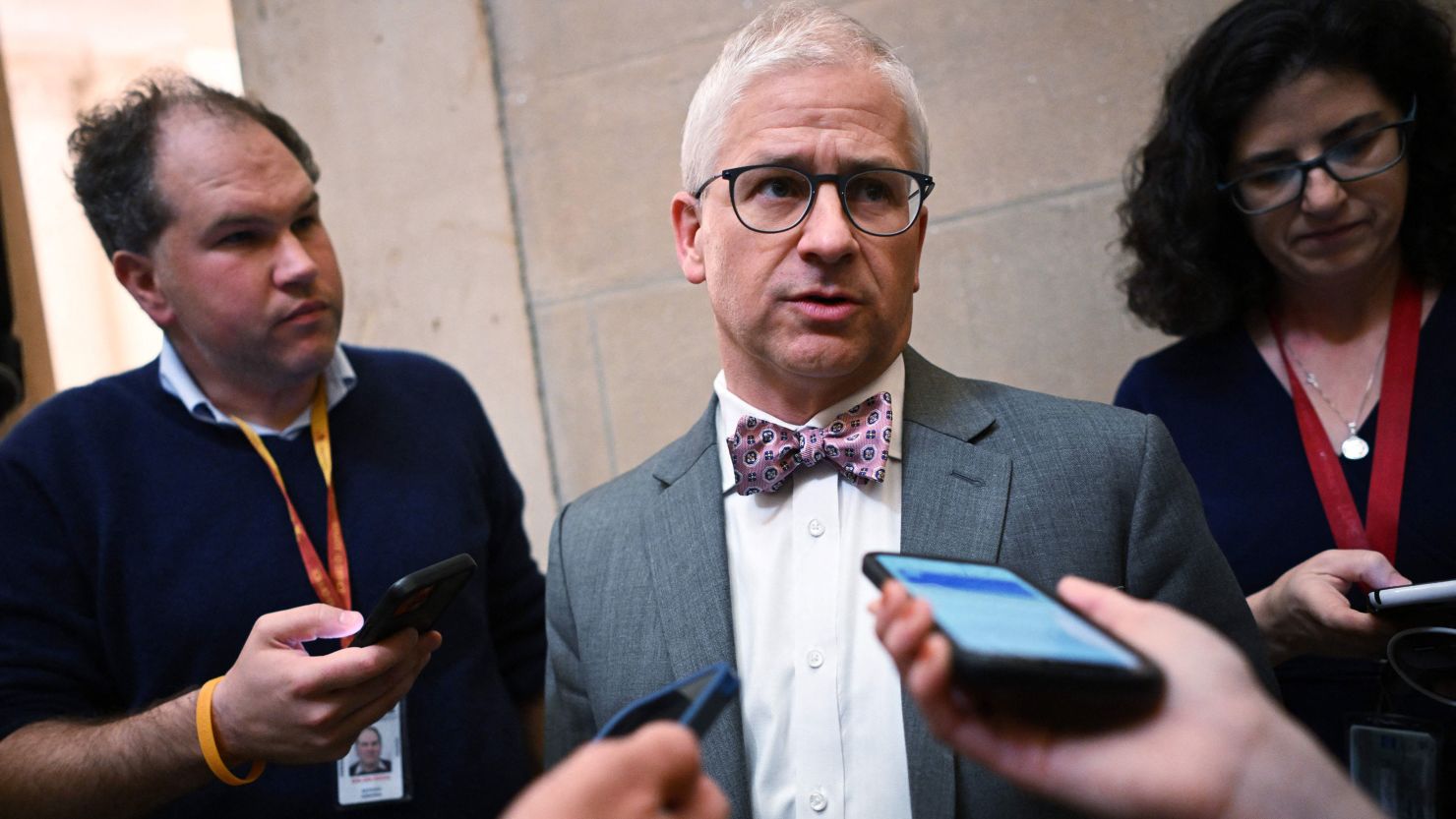The congressman temporarily leading the House of Representatives as it searches for a new speaker was selected for the job by Rep. Kevin McCarthy before he was ousted from the speaker’s chair, and some lawmakers want to expand his power beyond the limited portfolio of the interim speaker.
Rep. Patrick McHenry, as speaker pro tempore, is charged with presiding over the vote and selection of the chamber’s next speaker, a process that has been playing out over recent weeks without a clear result.
As the House GOP conference has struggled to coalesce behind a speaker candidate who can win a majority of the House, some Republican leaders are now leaning toward backing a resolution to expand and formalize McHenry’s powers, sources told CNN on Thursday. The resolution being pushed by some in the conference would empower McHenry until January or until a new speaker is elected.
As speaker pro tempore, the Republican can only recess the House, adjourn the chamber and recognize speaker nominations. While committees may still operate, McHenry cannot bring bills or even nonbinding resolutions to the floor.
The limits of the role complicate Congress’ next steps as President Joe Biden has said he intends to ask the body to approve more funding for Israel to help it defend its territory and people after the Hamas attack.
Before eight Republicans joined Democrats to remove McCarthy as speaker, the California Republican was required to submit a confidential list to the clerk of people “in the order in which each shall act as Speaker pro tempore in the case of a vacancy,” according to House rules. With McCarthy suddenly out of his leadership job, the number one name on that list – in this case, McHenry – became the interim speaker.
McHenry in recent days has made clear to colleagues that his role is narrow and is only intended to help elect the next speaker of the House, and he’s maintained that even putting on the floor a resolution vowing support for Israel isn’t within its scope – even as some have raised the question.
That means that the only way to move more funding for Israel is to elect a new speaker, something that remains in flux as neither Reps. Jim Jordan of Ohio nor Steve Scalise of Louisiana have locked down the votes needed to secure the gavel. Scalise dropped out of the speaker race last week, while Jordan lost two votes this week.
The idea behind expanding McHenry’s powers, according to a Jordan ally, is to give Jordan more time to build support without the chaos of a speaker-less House – and Jordan does not plan to drop out of the race and wants to remain the speaker designee, the source said. But many Jordan opponents want him to drop out entirely, and it’s unclear if empowering McHenry will win over his most ardent detractors.
A strong ally of McCarthy’s, McHenry played a key role in successfully negotiating the California Republican’s speakership in January by chipping away at some of the same hardline conservatives who opposed McCarthy’s leadership earlier this month. Under McCarthy, he was also deployed as a top negotiator for House Republicans in securing an agreement with the White House to prevent the US from defaulting for the first time in history.
Born in Gastonia, North Carolina, McHenry received a bachelor’s degree in history from Belmont Abbey College and started his career in politics in 1998 after launching a failed bid for the North Carolina state House of Representatives.
Following his work on George W. Bush’s 2000 presidential campaign, he was appointed special assistant to the labor secretary in 2001, according to his congressional bio. McHenry was elected to the state House in 2002. In 2004, at age 29, he was elected to Congress, becoming one of the youngest lawmakers at that time. He won his 10th term last November.
He serves as chair of the House Financial Services Committee, where he has long been a member and held leadership roles, including as chairman of the oversight and investigations subcommittee.
This story has been updated with additional details.
CNN’s Kristin Wilson, Chandelis Duster, Melanie Zanona, Lauren Fox, Annie Grayer and Jeremy Herb contributed to this report.




